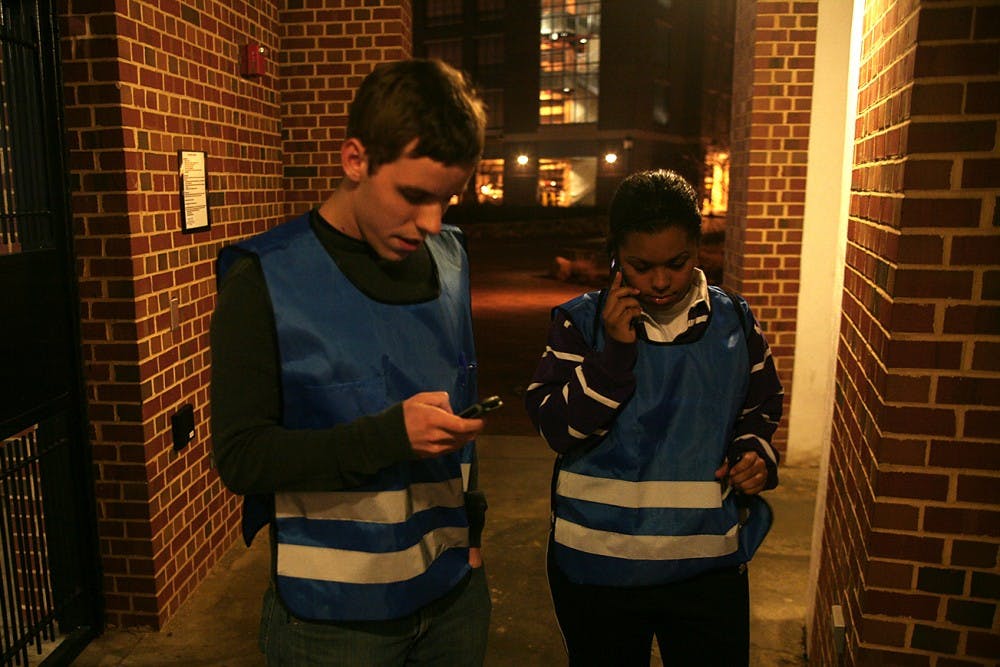Students leaving libraries tonight will hear this question for the first time this semester.
SafeWalk, which is student-run and University-funded, provides employees to help students get home safely. They are stationed outside Davis Library and the Undergraduate Library and are available by request from 11 p.m. until 3 a.m. Sunday through Thursday.
Felicity Welch, SafeWalk’s program director, said the program is important because of the feeling of security it offers to students.
“It’s not necessarily about providing safety on campus, but it’s about providing comfort,” Welch said. “One thing we say is that even if you don’t feel unsafe walking home, we’re someone to talk to.”
The group hasn’t operated for the past three weeks because it’s been in a period of transition: instead of receiving funding from student government, SafeWalk now receives funding from UNC.
During the 2014-15 school year, SafeWalk dealt with $20,000 of debt.
“It’s resolved now. We’re very comfortable in our funding,” Welch said.
SafeWalk currently employs six people — a low number that has partially contributed to their delay in service.



